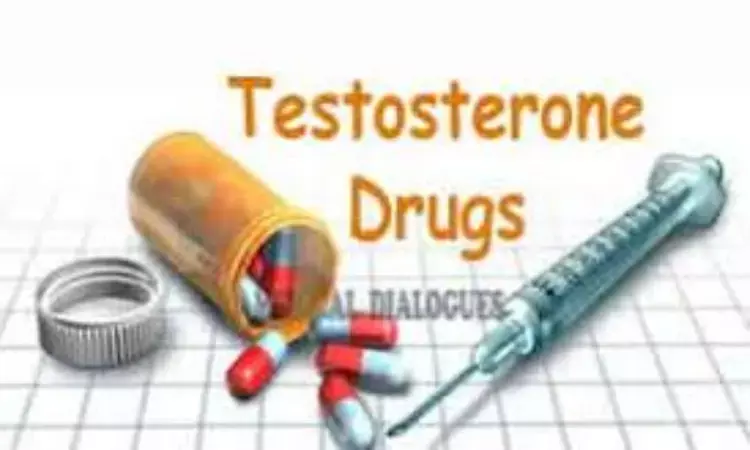- Home
- Medical news & Guidelines
- Anesthesiology
- Cardiology and CTVS
- Critical Care
- Dentistry
- Dermatology
- Diabetes and Endocrinology
- ENT
- Gastroenterology
- Medicine
- Nephrology
- Neurology
- Obstretics-Gynaecology
- Oncology
- Ophthalmology
- Orthopaedics
- Pediatrics-Neonatology
- Psychiatry
- Pulmonology
- Radiology
- Surgery
- Urology
- Laboratory Medicine
- Diet
- Nursing
- Paramedical
- Physiotherapy
- Health news
- Fact Check
- Bone Health Fact Check
- Brain Health Fact Check
- Cancer Related Fact Check
- Child Care Fact Check
- Dental and oral health fact check
- Diabetes and metabolic health fact check
- Diet and Nutrition Fact Check
- Eye and ENT Care Fact Check
- Fitness fact check
- Gut health fact check
- Heart health fact check
- Kidney health fact check
- Medical education fact check
- Men's health fact check
- Respiratory fact check
- Skin and hair care fact check
- Vaccine and Immunization fact check
- Women's health fact check
- AYUSH
- State News
- Andaman and Nicobar Islands
- Andhra Pradesh
- Arunachal Pradesh
- Assam
- Bihar
- Chandigarh
- Chattisgarh
- Dadra and Nagar Haveli
- Daman and Diu
- Delhi
- Goa
- Gujarat
- Haryana
- Himachal Pradesh
- Jammu & Kashmir
- Jharkhand
- Karnataka
- Kerala
- Ladakh
- Lakshadweep
- Madhya Pradesh
- Maharashtra
- Manipur
- Meghalaya
- Mizoram
- Nagaland
- Odisha
- Puducherry
- Punjab
- Rajasthan
- Sikkim
- Tamil Nadu
- Telangana
- Tripura
- Uttar Pradesh
- Uttrakhand
- West Bengal
- Medical Education
- Industry
Testosterone therapy may reduce NAFLD risk in obese men with diabetes, and hypogonadism

Ljubljana, Slovenia: Testosterone therapy may reduce non-alcoholic fatty liver disease (NAFLD) in obese men with type 2 diabetes and hypogonadism, finds a recent study. The two-year study found that therapy with testosterone undecanoate normalized testosterone levels, reduced NAFLD, and suppressed the symptoms of hypogonadism in men living with these conditions.
The findings of the study were presented at the 23rd European Congress of Endocrinology (e-ECE 2021) on Tuesday 25 May 2021.
Kristina Groti Antonic and colleagues from the University of Ljubljana aimed to evaluate the effects of testosterone therapy on morphology and grade of NAFLD in obese men with functional hypogonadism and type 2 diabetes
NAFLD is emerging as a public health issue worldwide. It is estimated that prevalent cases will increase 21% by 2030, from 83.1 million to 100.9 million. NAFLD is more commonly found in people with type-2 diabetes and is linked to obesity, insulin resistance, and atherogenic dyslipidemia. NAFLD refers to excess fat accumulation in the liver, in the absence of excessive alcohol consumption. Alcohol consumption of less than 30 g (3.75 units) per day for men is used as the cut-off to diagnose NAFLD. As an increasing global health issue, this study and its findings may be a promising area for further research.
The researchers carried out a large study on the effects of testosterone therapy on glycemic control, metabolic parameters, vascular function, and morphology in obese men with hypogonadism and type-2 diabetes mellitus. They presented a part of this study at e-ECE 2021 in which they evaluated the effects of testosterone therapy on morphology and grade of NAFLD in this population. The two-year clinical trial saw 55 males with functional hypogonadism and type-2 diabetes participate. The first year focused on a double-blind, placebo-controlled study and the following year was used for follow-up.
During the study, the participants were randomized into two groups. The first group received testosterone undecanoate during both years of the study, while the second group received a placebo in the first year and testosterone therapy in the second year. A range of tests including testosterone levels, prostate-specific antigen, and routine blood tests were assessed at the beginning of the trial, 12 and 24 months. Liver ultrasounds for NAFLD grade assessments were performed at the beginning and after two years, which showed an improvement in NAFLD grades after two years of the trial.
Dr. Kristina Groti Antonic shared that, "improvement of NAFLD grade was a result of improved insulin resistance, reduction in body mass index and body weight, along with changes in body composition. As we know, testosterone increases lean body mass at the expense of fat mass, either alone or in combination with behavioral and lifestyle modifications. Testosterone with its anti-inflammatory effects also reduced the chronic inflammatory state in the liver. Our study shows that testosterone therapy could be used as a suitable therapy for obese men living with non-alcoholic fatty liver disease, and therefore the findings can be used to tackle this growing pandemic."
This knowledge could help obese men living with functional hypogonadism and type-2 diabetes experience normalized testosterone levels and reduced prevalence of the non-alcoholic fatty liver disease.
Hina Zahid Joined Medical Dialogue in 2017 with a passion to work as a Reporter. She coordinates with various national and international journals and association and covers all the stories related to Medical guidelines, Medical Journals, rare medical surgeries as well as all the updates in the medical field. Email: editorial@medicaldialogues.in. Contact no. 011-43720751
Dr Kamal Kant Kohli-MBBS, DTCD- a chest specialist with more than 30 years of practice and a flair for writing clinical articles, Dr Kamal Kant Kohli joined Medical Dialogues as a Chief Editor of Medical News. Besides writing articles, as an editor, he proofreads and verifies all the medical content published on Medical Dialogues including those coming from journals, studies,medical conferences,guidelines etc. Email: drkohli@medicaldialogues.in. Contact no. 011-43720751


